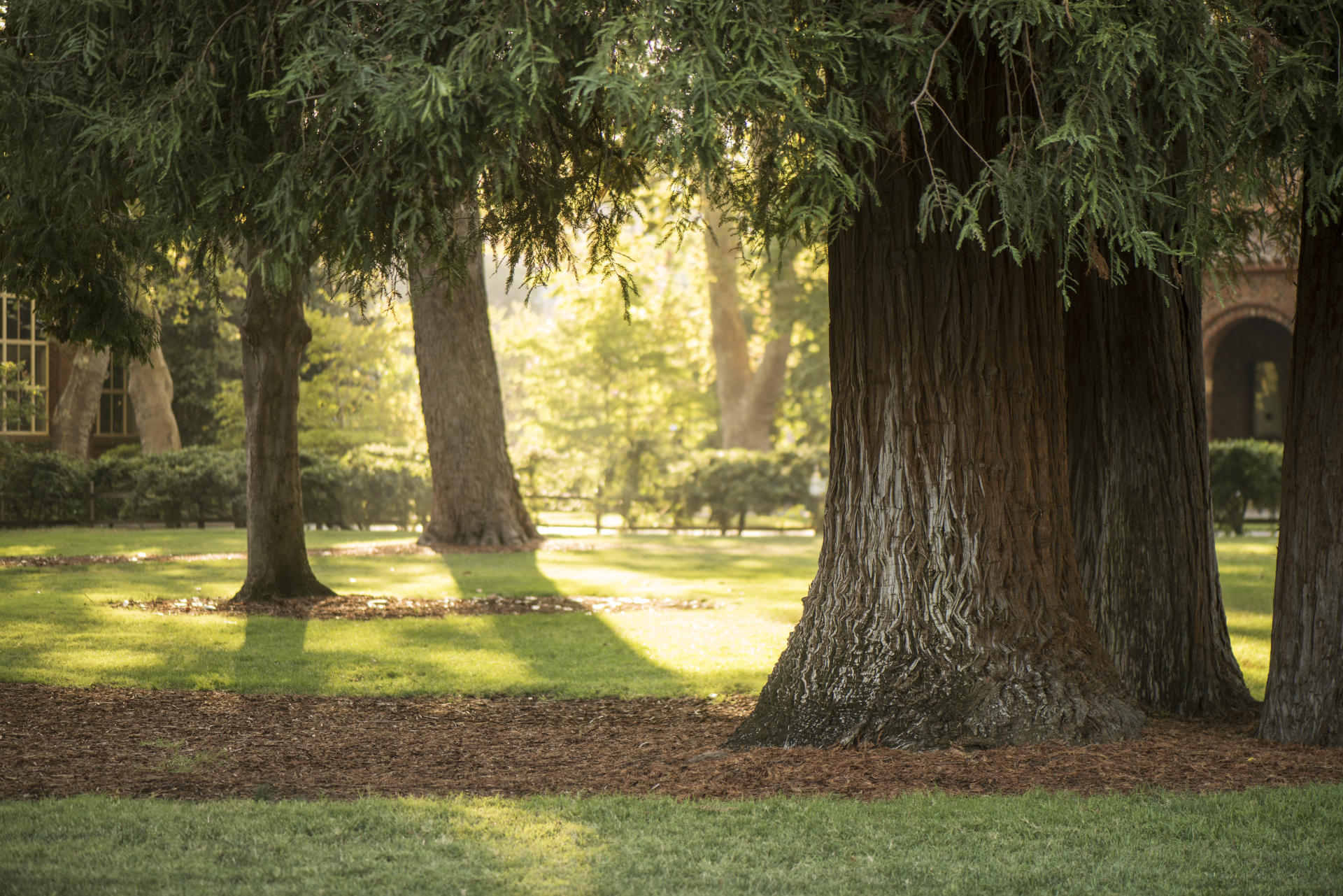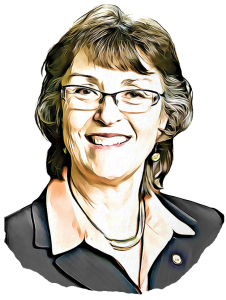From the President: The Time is Now to Take Action on Climate Neutrality

The sun sets behind the trees on the Kendall Hall lawn on Thursday, August 4, 2016 in Chico, Calif. (Jason Halley/University Photographer)
Watching CBS Sunday Morning last week, I caught a segment about National Geographic photographer Joel Sartore and his Photo Ark project. Sartore expressed his concern about the rapid pace at which the world is losing animals and insects to extinction. To bring this information to light, he travels across continents photographing endangered species. Sartore made a compelling statement that he wants to spend his life knowing he did something that mattered in the world. In this case, he hopes his work will educate millions of people about the elimination of biodiversity among species and ignite strong conservation efforts that will prevent further extinctions. To date, Sartore has photographed 8,255 species. He has a long way to go to complete his project, and time is of the essence.
Rapid species extinction relates directly to the effects of climate change and human impacts on the environment. Recently, The Washington Post summarized the sixth climate assessment report released by the Intergovernmental Panel on Climate Change (IPCC) in a headline, “The world has just over a decade to get climate change under control.” The IPCC, sponsored by the United Nations and composed of 91 notable climate scientists from 40 countries, substantiated its research findings with the analysis of over 6,000 research studies on climate change.
There is no more time for partisan debate. The evidence is irrefutable. It is imperative that governments, industries, and citizens across the globe take significant actions to reduce carbon emissions and do so immediately.

At Chico State, we are working toward climate neutrality. We have faculty, students, and staff doing their part. For instance, one of our professors is a climate scientist conducting studies that contribute to a growing body of knowledge and educating our students about ways they can help mitigate effects of climate change.
Shane Mayor, professor of environmental science, is teaching for the first time a special topics course called “Global Climate Change.” Focusing on the physical processes and energy imbalances in the atmosphere, ocean, and cryosphere, Mayor and his students had the timely opportunity to explore the IPCC’s summary report for policymakers in class.
Mayor’s students express an interest in learning about the impact of humans on climate, understanding forecasting, and how we know what changes are occurring. As a first-time offering, the course is evolving as it is being taught. Mayor’s goal is to teach his students to become fluent with the nomenclature and not to be intimidated by the terms and equations necessary to conduct climate science.
His mission is not just a professional one but a personal one, he explains, noting the distress that occurs when one has to think seriously about climate change every day.
“It’s an honor to teach such an important subject and the students are inspirational,” Mayor said. “But, teaching it (and courses like GEOS 300: Earth System Science) means thinking about it almost all the time. It ‘sinks in’ and causes me to see vividly what a ridiculous trajectory we are on.”
“The American mantra is freedom,” continued Mayor. “But I believe that solving the climate problem requires limiting our freedom. … It means having our wings clipped for the sake of the planet as we know it and billions of other people and generations to come. I’m not optimistic that the U.S. will ever be able to voluntarily break our addiction to freedom and fossil fuels in order to deal with climate change in a timely manner.”
Mayor’s discussions on climate change are not the only ones taking place at Chico State. Professor Ann Bykerk-Kauffman, a structural geologist, has taught a “Critical Thinking” course on the subject of climate change for six years.
Outside the classroom, Bykerk-Kauffman participates in methods to mitigate climate change in another way. She is a member of the Citizens Climate Lobby, which is an international organization advocating for a specific solution—to impose a carbon fee on all carbon-based fuels. Bykerk-Kauffman has lobbied Congress to support of this fee.
Geography and Planning professor Noriyuki Sato explores changing climate in the course “Climatology,” and he used the IPCC report as a reading assignment in “Earth Systems Analysis of Global Change.” Recently, the “Climatology” class discussed climate velocity, or how different species cope with changing climate by moving or adapting, including how humans could prepare for changing conditions or impacts due to temperature changes by reviewing different risks and considering different adaptation options.
As I reflect on Sartore’s project and the assertions by the IPCC, Professors Mayor, Bykerk-Kauffman, and Sato are commended for their scientific and pedagogical contributions related to climate change. As a campus, Chico State has rekindled its climate commitments and continues to strive toward goals of climate neutrality.
Like Sartore, I’m confident we all want to make a difference. How might you contribute to improve the ecological and social health of the world? Ten years is not that long of a time span. We best get moving!



